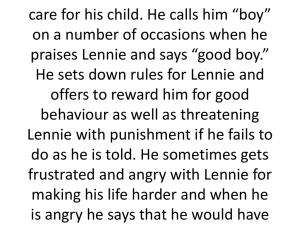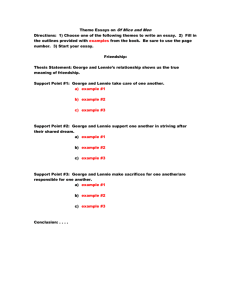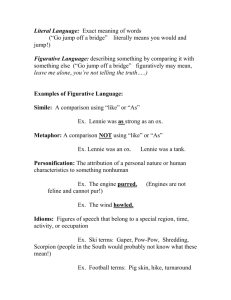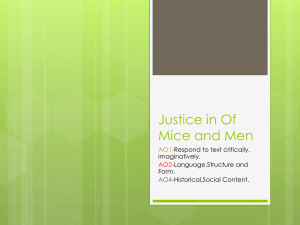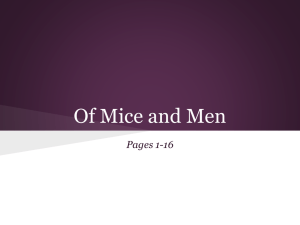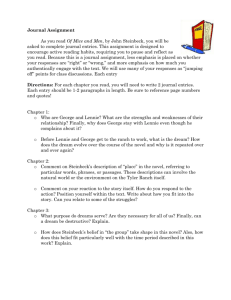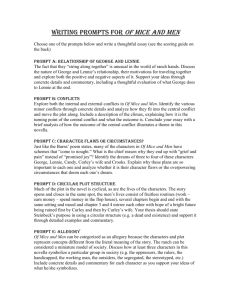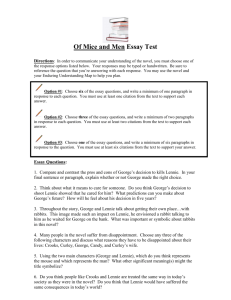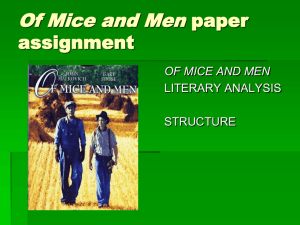The Formula: Embedding Quotes
advertisement
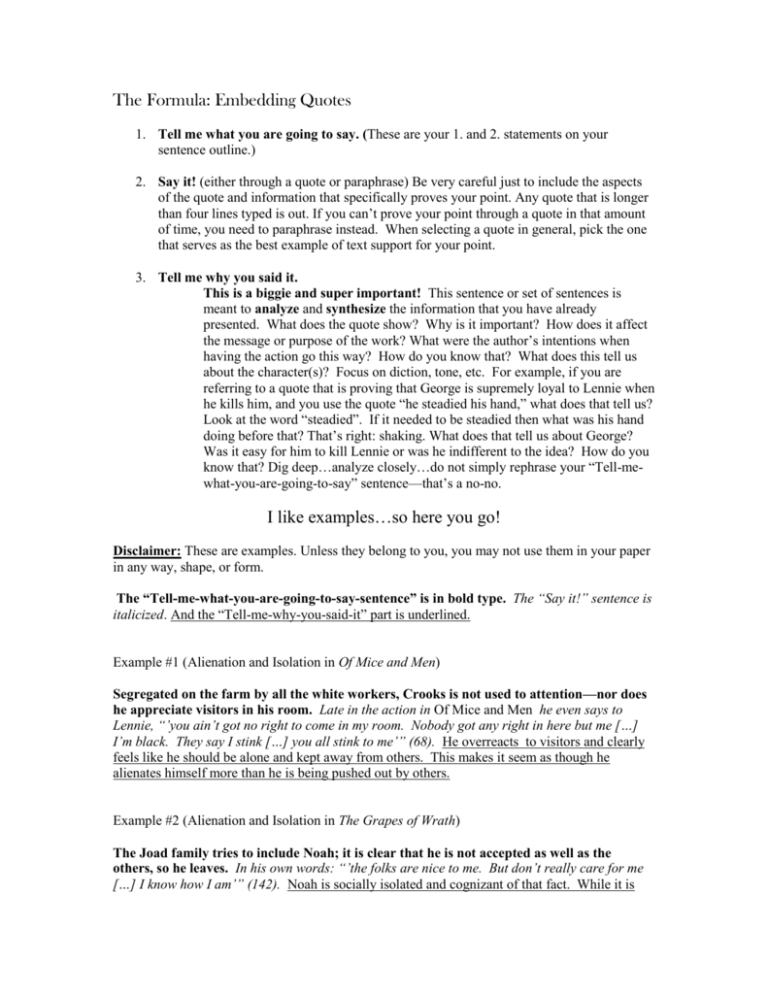
The Formula: Embedding Quotes 1. Tell me what you are going to say. (These are your 1. and 2. statements on your sentence outline.) 2. Say it! (either through a quote or paraphrase) Be very careful just to include the aspects of the quote and information that specifically proves your point. Any quote that is longer than four lines typed is out. If you can’t prove your point through a quote in that amount of time, you need to paraphrase instead. When selecting a quote in general, pick the one that serves as the best example of text support for your point. 3. Tell me why you said it. This is a biggie and super important! This sentence or set of sentences is meant to analyze and synthesize the information that you have already presented. What does the quote show? Why is it important? How does it affect the message or purpose of the work? What were the author’s intentions when having the action go this way? How do you know that? What does this tell us about the character(s)? Focus on diction, tone, etc. For example, if you are referring to a quote that is proving that George is supremely loyal to Lennie when he kills him, and you use the quote “he steadied his hand,” what does that tell us? Look at the word “steadied”. If it needed to be steadied then what was his hand doing before that? That’s right: shaking. What does that tell us about George? Was it easy for him to kill Lennie or was he indifferent to the idea? How do you know that? Dig deep…analyze closely…do not simply rephrase your “Tell-mewhat-you-are-going-to-say” sentence—that’s a no-no. I like examples…so here you go! Disclaimer: These are examples. Unless they belong to you, you may not use them in your paper in any way, shape, or form. The “Tell-me-what-you-are-going-to-say-sentence” is in bold type. The “Say it!” sentence is italicized. And the “Tell-me-why-you-said-it” part is underlined. Example #1 (Alienation and Isolation in Of Mice and Men) Segregated on the farm by all the white workers, Crooks is not used to attention—nor does he appreciate visitors in his room. Late in the action in Of Mice and Men he even says to Lennie, “’you ain’t got no right to come in my room. Nobody got any right in here but me […] I’m black. They say I stink […] you all stink to me’” (68). He overreacts to visitors and clearly feels like he should be alone and kept away from others. This makes it seem as though he alienates himself more than he is being pushed out by others. Example #2 (Alienation and Isolation in The Grapes of Wrath) The Joad family tries to include Noah; it is clear that he is not accepted as well as the others, so he leaves. In his own words: “’the folks are nice to me. But don’t really care for me […] I know how I am’” (142). Noah is socially isolated and cognizant of that fact. While it is never directly stated to him by a family member that he is not accepted as himself, it is nonetheless a perception that he feels is confirmed in his family’s behavior toward him. Noah’s response is to physically isolate himself from the family unit. Example #3 (Loyalty in Of Mice and Men) George and Lennie’s friendship seems so authentic and sincere throughout the novel. The ultimate test of loyalty in George and Lennie', however, becomes murder. The narrator explains: “George raised the gun and steadied it…and he lay without quivering (101). While many could construe this as betrayal, George’s decision was an urgent act of love. He wanted what was best for Lennie and did what he thought a good friend should do. Example #4 (Alienation and Isolation in The Grapes of Wrath) The Joad’s, like many other migrant families, were treated as foreigners when they entered California territory. These destitute families found themselves in Hooverville camps, away from California natives. Steinbeck paints a particularly vivid scene when he describes “the smoke of paper houses of weed-thatched huts raising to the sky and to the people in their cars rolling over the highways, looking for another Hooverville” (198). Moving from one place to another, these families had no roots. Steinbeck uses the word paper to describe the construction of the almost disposable houses. In the absence of anything permanent, the migrants developed supreme isolation. Example #5 (Class Conflict in Of Mice and Men) The unyielding gap between the privileged and the paupers in Of Mice and Men awards security and stability to some, but a nomadic lifestyle to others. Lennie, Candy, and Crooks are discriminated against because of their physical and mental incapacities. One night, while looking for Curley, his wife encounters the men in Crooks’ room and remarks, “’They left all the weak ones here” (77). The hierarchy on the ranch, just as everywhere, is based on the survival of the fittest—both mentally and physically. Lennie, Candy, and Crooks personify the struggle of the less-able migrant workers. Similarly, Curly treats the ranchers with disdain and brutality, as shown in his treatment of Lennie. Without any real provocation, Curley attacks Lennie: saying, “’Come on, ya big bastard […] I’ll show you who’s yella’” (62). In this instance, Curley displays his feelings of superiority over the ranchers and his desire to make his power known. Let’s practice as a class… (Alienation in Of Mice and Men) Because of Lennie’s disability, George tends to alienate him from others by imposing his intelligence on him. This can be seen in the way that George speaks to him: “’Now, look—I’ll give him the work tickets, but you ain’t gonna say a word’” (42). ______________________________________________________________________________ ______________________________________________________________________________ ______________________________________________________________________________ ______________________________________________________________________________
